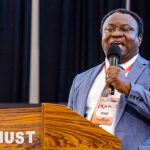The Ministry of Healing that our Lord Jesus Christ started has evolved into the Ministry of Health, requiring a holistic approach that addresses not only physical but also emotional, spiritual, and other aspects of human well-being. Jesus’s ministry on earth was marked by numerous healings, including curing fever, leprosy, blindness, and paralysis, as well as freeing the oppressed and demon-possessed. As Physician Assistants, we are called to continue this ministry, empowered by a deep understanding of our role and the principles of holistic empowerment.
The Physician Assistant profession, which began in Ghana in 1969, is crucial in middle and low-income countries, where access to healthcare is limited. According to the Modern Ghana Blog, the introduction of this profession was a response to the low medical workforce, uneven distribution of health professionals and facilities, and poor road networks. Physician Assistants have become the backbone of primary healthcare in Ghana, working under challenging conditions to make healthcare accessible to rural communities, reducing morbidity and mortality, and promoting health in the population.
As Physician Assistants, we stand in the gap between nurses and doctors, situated in communities and at the periphery of healthcare delivery. Our role is not limited to diagnosing and prescribing treatments but also to impacting clients in other aspects of life. We must be beacons of hope to the diseased and sinners, operating with a virtue that brings healing and transformation. This virtue is exemplified in the story of the woman who touched Jesus’s garment and was healed of her chronic bleeding.
A holistically empowered Physician Assistant operates and succeeds in all facets of life and the profession. This requires a smile, an open heart, good rapport, empathy, and a passion to save the hopeless and dying. As believers filled with the Holy Ghost, we must not compromise on ethics, which guide our profession, and must not bury morality and spirituality.
To live our calling as Physician Assistants with holistic empowerment, we must adopt certain principles. Firstly, we must pray in our secret rooms before stepping into the hospital, committing the day into God’s hands and seeking healing power (James 5:13-14).
Secondly, we must study to show ourselves approved, staying updated with old and new knowledge, and being prepared academically and practically to deliver (2 Tim 2:15).
Thirdly, we must declare positively into the day, without fear, and trust in God’s power to guide us. Again, we must prioritize passion over money, deriving pleasure in healing and saving lives rather than just amassing wealth.
BY BOATENG MIREKU THEODORA (Dcns.)
(Women’s Commissioner – National Health Students Association of Ghana)





